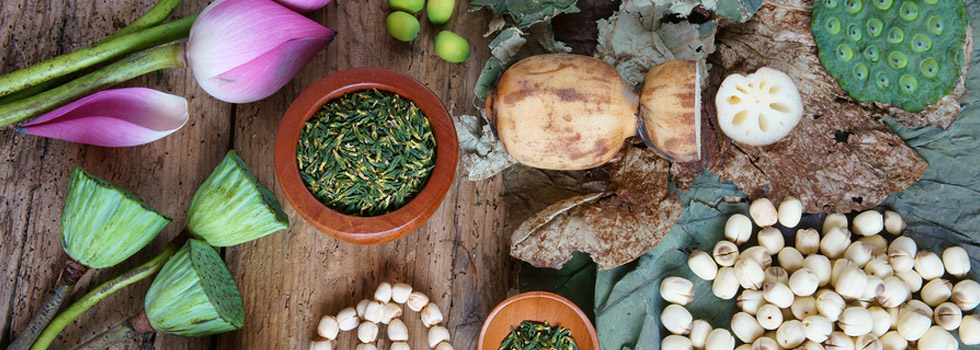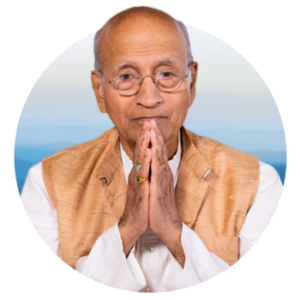
Accepting applications for the 2026-27 school year
Accepting applications for the 2026-27 school year

A daily routine is absolutely necessary to bring radical change in body, mind, and consciousness. Routine helps to establish balance in one’s constitution. It also regularizes a person’s biological clock, aids digestion, absorption and assimilation, and generates self-esteem, discipline, peace, happiness, and longevity.
It is good to wake up before the sun rises, when there are loving (sattvic) qualities in nature that bring peace of mind and freshness to the senses. Sunrise varies according to the seasons, but on average vata people should get up about 6 a.m., pitta people by 5:30 a.m., and kapha by 4:30 a.m. Right after waking, look at your hands for a few moments, then gently move them over your face and chest down to the waist. This cleans the aura.
“Dear God, you are inside of me, within my very breath, within each bird, each mighty mountain.
Your sweet touch reaches everything and I am well protected.
Thank you God for this beautiful day before me.
May joy, love, peace and compassion be part of my life and all those around me on this day.
I am healing and I am healed.”
After this prayer touch the ground with your right hand, then the same hand to the forehead, with great love and respect to Mother Earth.
Splash your face with cold water and rinse out your mouth. Wash your eyes with cool water (or one of the eye washes mentioned below) and massage the eyelids by gently rubbing them. Blink your eyes 7 times and rotate your eyes in all directions. Dry your face with a clean towel.
Then drink a glass of room temperature water, preferably from a pure copper cup filled the night before. This washes the GI track, flushes the kidneys, and stimulates peristalsis. It is not a good idea to start the day with tea or coffee, as this drains kidney energy, stresses the adrenals, causes constipation, and is habit-forming.
Sit, or better squat, on the toilet and have a bowel movement. Improper digestion of the previous night’s meal or lack of sound sleep can prevent this. However the water, followed by sitting on the toilet at a set time each day, helps to regulate bowel movements. Alternate nostril breathing may also help. After evacuation wash the anal orifice with warm water, then the hands with soap.
Gently scrape the tongue from the back forward, until you have scraped the whole surface for 7-14 strokes. This stimulates the internal organs, helps digestion, and removes dead bacteria. Ideally, vata can use a gold scraper, pitta a silver one, and kapha copper. Stainless steel can be used by all people.
Always use a soft toothbrush and an astringent, pungent, and bitter toothpaste or powder. The traditional Indian toothbrush is a neem stick, which dislodges fine food particles from between teeth and makes strong, healthy gums. Licorice root sticks are also used. Roasted almond shell powder can be used for vata and kapha, and ground neem for pitta.
To strengthen teeth, gums, and jaw, improve the voice and remove wrinkles from cheeks, gargle twice a day with warm sesame oil. Hold the oil in your mouth, swish it around vigorously, then spit it out and gently massage the gums with a finger.
Chewing a handful of sesame seeds helps receding gums and strengthens teeth. Alternatively, chew 3-5 dried dates and an inch of dried coconut meat. Chewing in the morning stimulates the liver and the stomach and improves digestive fire. After chewing, brush the teeth again without using toothpaste or powder.
Putting 3 to 5 drops of warm ghee or oil into each nostril in the morning helps to lubricate the nose, clean the sinuses, and improve voice, vision, and mental clarity. Our nose is the door to the brain, so nose drops nourish prana and bring intelligence.
For vata: sesame oil, ghee, or vacha (calamus) oil.
For pitta: brahmi ghee, sunflower or coconut oil.
For kapha: vacha (calamus root) oil.
Conditions such as ringing in the ears, excess ear wax, poor hearing, lockjaw, and TMJ, are all due to vata in the ears. Putting 5 drops of warm sesame oil in each ear can help these disorders.
Rub warm oil over the head and body. Gentle, daily oil massage of the scalp can bring happiness, as well as prevent headache, baldness, graying, and receding hairline. Oiling your body before bedtime will help induce sound sleep and keep the skin soft.
Bathing is cleansing and refreshing. It removes sweat, dirt, and fatigue, brings energy to the body, clarity to the mind, and holiness to your life.
Wearing clean clothes brings beauty and virtue.
Using natural scents, essential oils, or perfumes brings freshness, charm, and joy. It gives vitality to the body and improves self-esteem.
Regular exercise, especially yoga, improves circulation, strength, and endurance. It helps one relax and have sound sleep, and improves digestion and elimination. Exercise daily to half of your capacity, which is until sweat forms on the forehead, armpits, and spine.
After exercise, sit quietly and do some deep breathing exercises as follows:
It is important to meditate morning and evening for at least 15 minutes. Meditate in the way you are accustomed, or try the “Empty Bowl Meditation”. Meditation brings balance and peace into your life.
Your meal should be light in the hot months or if your agni is low, and more substantial in the cold. Enjoy your day!

The spiritual journey starts here

A native of India, he served for three years as Medical Director of the Ayurveda Hospital in Pune, India. He was Professor of Clinical Medicine at the Pune University College of Ayurvedic Medicine for 15 years. He holds a Bachelor’s of Ayurvedic Medicine and Surgery (BAM&S) degree from the University of Pune and a Master’s of Ayurvedic Science (MASc) degree from Tilak Ayurved Mahavidyalaya. The author of numerous books, Vasant Lad is respected throughout the world for his knowledge of Ayurveda.